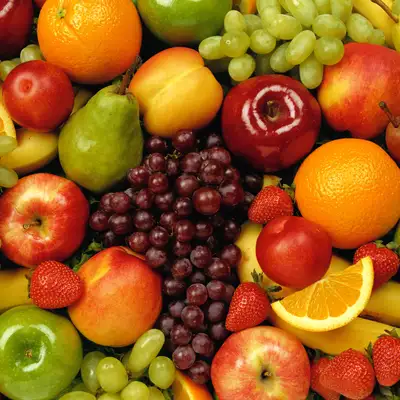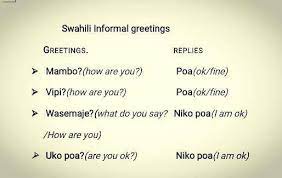Call us now:

FRUITS AND VEGETABLES IN SWAHILI
Fruits and vegetables/matunda na mboga za majani embe (mango), ndizi (banana) nanasi (pineapple), chungwa (orange) parachichi (avocado), papai (pawpaw) limao (lemon), ndimu (lime) tikiti maji…

Fruits and vegetables/matunda na mboga za majani embe (mango), ndizi (banana) nanasi (pineapple), chungwa (orange) parachichi (avocado), papai (pawpaw) limao (lemon), ndimu (lime) tikiti maji…
Making requests (maombi) in Swahili When requesting for something in Swahili remember to start with the word ‘Samahani’ (excuse me) or ‘tafadhali’ (please). Either of…

What is the meaning of language? Various scholars have tried to explain the meaning of language in different ways. In fact, language is a multidimensional…

Domestic animals and birds/Wanyama na ndege wafugwao ng’ombe (cow) punda (donkey) mbuzi (goat), kondoo (sheep) farasi (horse), ngamia (camel) mbwa (dog), paka (cat) chicken (kuku),…

Family Relationships Baba (father), mama (mother) kaka (brother), dada (sister) babu (grandfather), bibi (grandmother) mjukuu (grandchild) mjomba (uncle), shangazi (aunt) binamu (cousin), mpwa (nephew/niece)…

Swahili pronouns/viwakilishi A pronoun is a word that represents a certain noun (name). The same as English, Swahili has three (3) personal pronouns, each of…

A pronoun is a word that represents a certain noun (name). The same as English, Swahili has three (3) personal pronouns, each of which is…

Body parts in Swahili

In the Swahili language, greetings can be grouped into formal greetings and informal greetings. Greetings are often times intended to know how one feels health-wise…